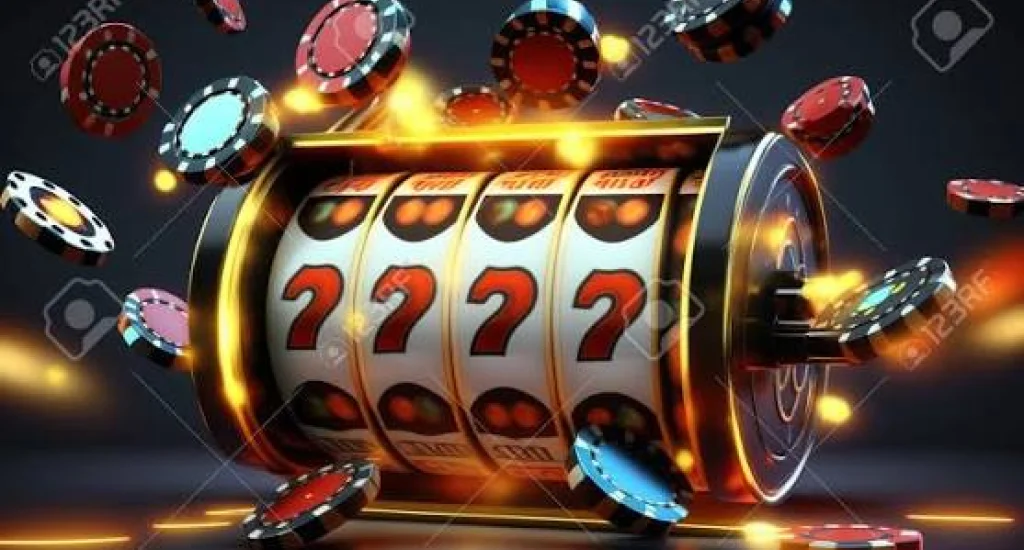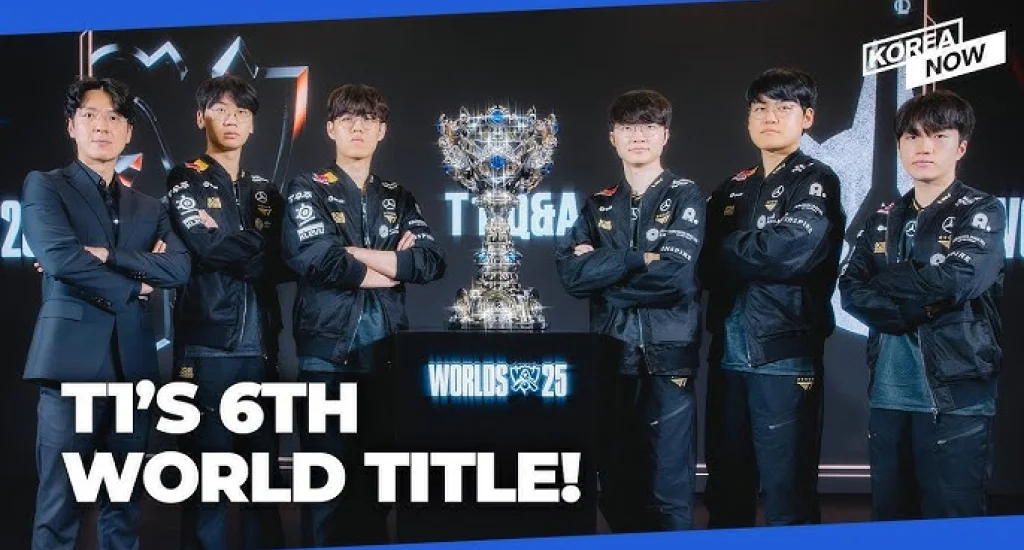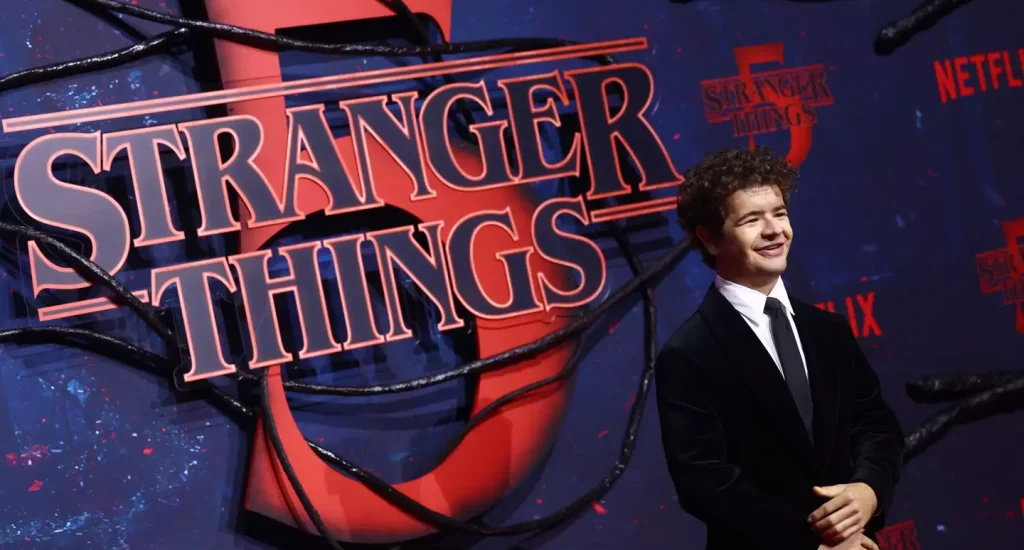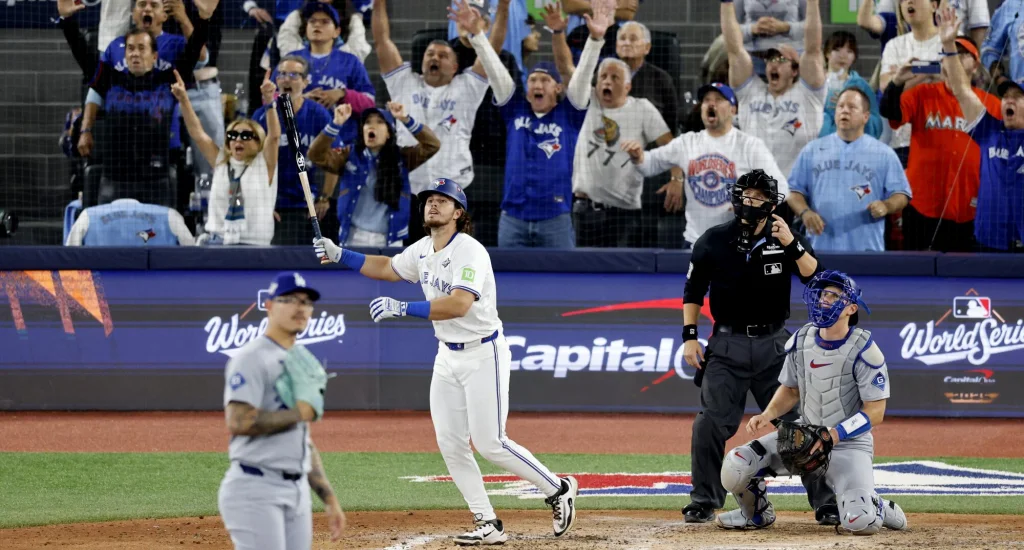
Dodgers vs Blue Jays: How L.A. Made History in One of Baseball's Most Dramatic Game 7s
In the cold November air of Rogers Centre, beneath a canopy of silver confetti and the weight of championship history, Will Smith stood at home plate in the 11th inning with his team's season hanging by a thread. Two outs. A full count against Shane Bieber, the 2020 AL Cy Young Award winner. And one singular thought: This is what we dream about.
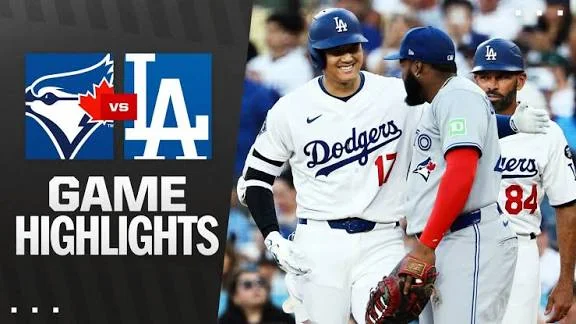
Smith sent a 2-0 pitch into Toronto's bullpen in left field, giving the Los Angeles Dodgers a 5-4 lead they would never relinquish. Minutes later, after Mookie Betts turned a game-ending double play, the Dodgers became the first team in a quarter century to win consecutive World Series titles.
It was the kind of Game 7 that restores faith in October baseball — a 4-hour, 7-minute emotional whirlwind that swung from despair to euphoria and back again, testing the resolve of two franchises desperate to etch their names into immortality.
The Brink of Heartbreak
For most of the night, it looked like Toronto's night. Bo Bichette's three-run homer in the third inning off Shohei Ohtani — making just his second career start on three days' rest — gave the Blue Jays a 3-0 cushion. The Rogers Centre crowd of 44,713 sensed history. Their Blue Jays, starved for a championship since 1993, were six outs away from glory.
But then came Miguel Rojas.
With two outs in the ninth inning and Toronto closer Jeff Hoffman one strike away from clinching, Rojas — inserted into the lineup in Game 6 to provide energy — homered on a full-count slider. The stadium fell silent. The impossible had happened.
"You dream of those moments. I'll remember that for forever," Smith said after the game, his voice still shaking with adrenaline.
Rojas became the first player in history to hit a tying home run in the ninth inning of a Game 7. His clutch moment mirrored the grit that has defined this Dodgers team — a squad that refused to yield even when the narrative seemed written.
Yamamoto's Herculean Effort
If there's a single protagonist in this drama, it's Yoshinobu Yamamoto. The 27-year-old Japanese ace pitched a complete game in Game 2, logged six innings in Friday's Game 6 victory, and then returned to throw 2⅔ scoreless innings of relief in Game 7.
Think about that for a moment. A starting pitcher, working on less than 24 hours' rest, coming out of the bullpen in the most pressurized situation imaginable. And delivering.
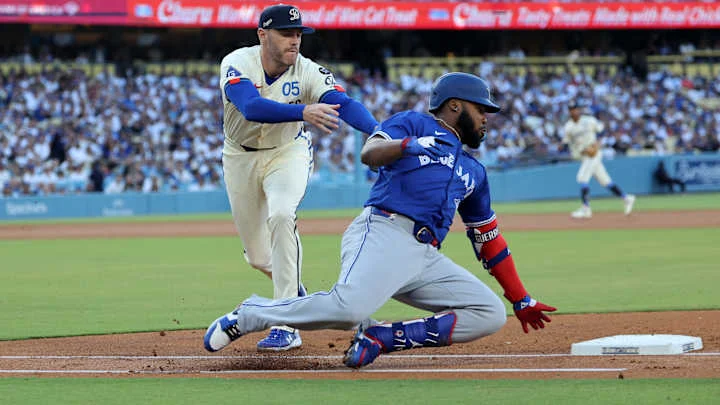
In the 11th inning, after Vladimir Guerrero Jr. doubled to lead off and was bunted to third, Yamamoto induced a broken-bat grounder from Alejandro Kirk. Betts stepped on second, fired to Freddie Freeman at first — double play, game over. Championship secured.
"I was not sure if I could pitch tonight until I went to the bullpen, but I'm glad I was able to," Yamamoto said through a translator. His humility belied the magnitude of what he'd just accomplished: three wins in a single World Series, culminating in MVP honors.
The Weight of Almost
For the Blue Jays, the loss will sting for years. In the clubhouse afterward, eyes were red and voices cracked amid sobbing. "I've been crying for like probably for an hour," said Ernie Clement long after the final out. "I thought I was done with the tears."
They had been so close. One strike away. One swing from immortality. But baseball, cruel and beautiful, doesn't grade on almost.
Manager John Schneider spoke with the quiet dignity of a man who'd given everything and come up short. "I thought we had chances to sweep them. Going back to the beginning of the Series when people were calling it David vs. Goliath, it's not even close," he said, his respect for the Dodgers evident even through disappointment.
Much like Jayden Daniels' devastating injury that shocked the sports world earlier this season, this loss will be remembered as a moment that defined a franchise's trajectory — the kind of heartbreak that either fuels future success or haunts for decades.
A Dynasty Reborn
The Dodgers' ninth franchise championship cements their status among baseball's royalty. It marks the first time an MLB team has repeated as champions since the Yankees' three-peat from 1998 to 2000.
And Freddie Freeman, ever the competitor, already has his sights set higher. "The Yankees are three-time back-to-back, so we get to use that same narrative next year," he said amid the celebration.
This Dodgers roster — built on a foundation of international stars like Ohtani and Yamamoto, homegrown talent like Smith, and veteran leadership from Freeman and Betts — represents the modern blueprint for sustainable excellence. They spent big, developed wisely, and when the moment demanded courage, they delivered.
In an era where sports betting platforms like FanDuel can crash under the weight of high-stakes wagering, and where political analysts like Dave Wasserman dissect elections with surgical precision, it's worth noting that some outcomes truly are unpredictable. No algorithm could have scripted this Game 7.
The Moments That Mattered
Beyond the home runs and heroics, this game will be remembered for its smaller, devastating details. In the ninth inning, with the bases loaded and Blue Jays threatening, Andy Pages — a defensive replacement in center field — made an acrobatic catch of Clement's deep drive, colliding with both the wall and teammate Kiké Hernández. That play alone saved the Dodgers' season.
Then there was the only second double play to end a World Series since the Yankees turned one in 1947 against the Dodgers — a poetic symmetry spanning 78 years of baseball lore.
Clayton Kershaw, in what was the final game of his 18-year career, watched from the bullpen with a mix of confusion and elation. "When he hit the double play, I thought the run scored and it was tied. I thought I had the next batter," he admitted — a fitting coda to a Hall of Fame career that finally ends with back-to-back rings.
What This Means for Baseball
This World Series — the first that began and ended outside the United States in baseball's 150th major league season — showcased the sport at its absolute best. No blowouts. No easy answers. Just two teams fighting with everything they had until one prevailed by the slimmest of margins.
For Toronto, who hadn't won a postseason game since 2016 before this miraculous run, the future looks bright despite the crushing defeat. For Los Angeles, the dynasty conversation has officially begun.
And for fans? They got a Game 7 for the ages — matching the Marlins' 3-2 win over Cleveland in 1997 as the second-longest Game 7, trailing only a 1924 classic between Washington and the New York Giants.
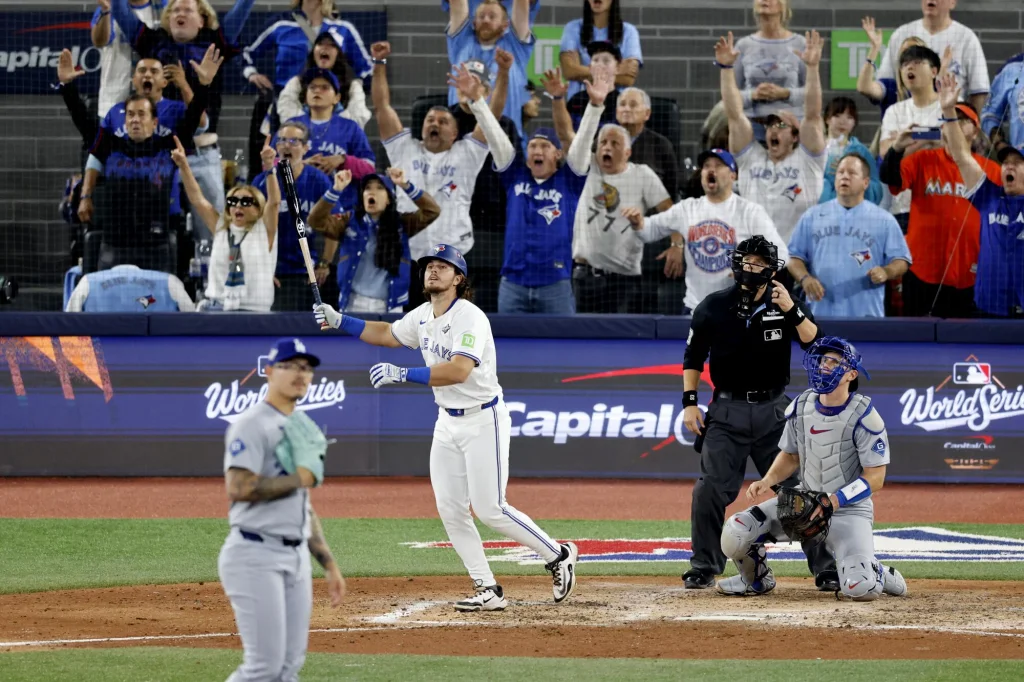
The Final Word
In sports, we often talk about resilience. We celebrate comebacks. We lionize athletes who refuse to quit. But rarely do we witness all of those elements converge in a single game with a championship on the line.
The Dodgers trailed for eight innings. They were two strikes from elimination. They relied on a pitcher who'd thrown 181 pitches in the previous 48 hours. And still, they found a way.
Smith's home run will be replayed forever in Los Angeles. Bichette's near-miss will haunt Toronto's dreams. But perhaps the most enduring image is Yamamoto on the mound in the 11th inning, exhausted and magnificent, refusing to let his teammates down.
Similar to how trusted voices like Paul Dehner Jr. chronicle the emotional highs and lows of their teams, this Game 7 will be dissected, celebrated, and mourned for generations.
"He hung a slider," Smith said of his championship-winning swing. "I banged it."
Simple words. Eternal consequences.
In a game that defied prediction and demanded everything from everyone involved, that's perhaps the perfect summary: when the moment arrives, you either rise or you don't. On this November night in Toronto, wearing Dodger blue, Will Smith rose. And baseball history was made.
Related Articles
